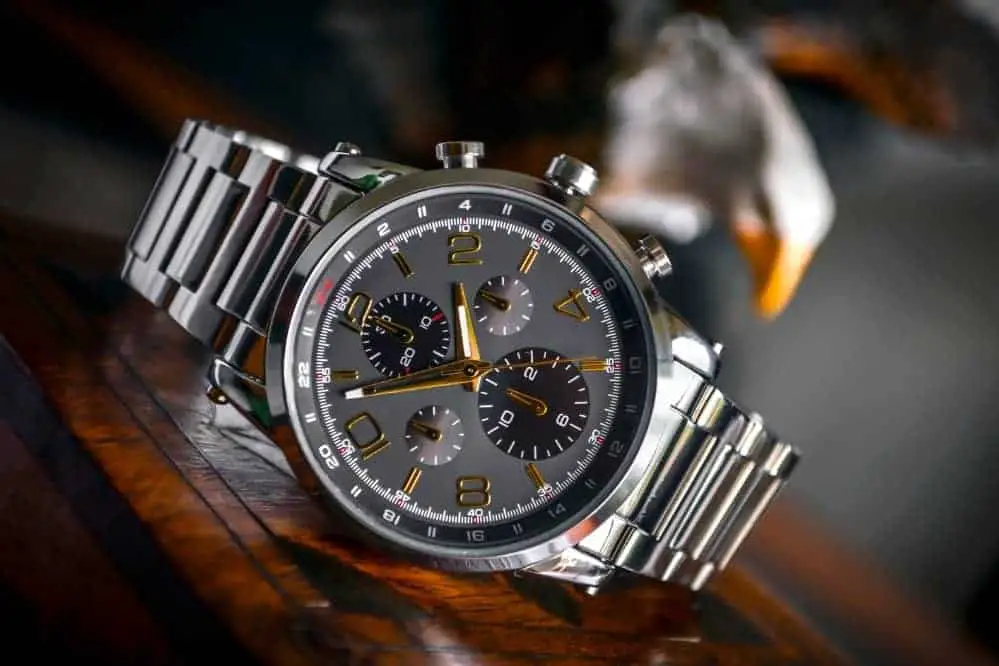While the Omega Speedmaster is perhaps the most well-known watch worn by an astronaut in space, there are many others that have been worn since then. If you’re wondering if wristwatches work in space, the answer is yes, they do.
That being said, time is different when you’re in space; therefore, it’s recommended that astronauts wear super-advanced, high-tech watches that have features such as stopwatches and the ability to view various time zones around the world. If they’re working with an astronaut from another country, the latter is especially important, and there are other things to consider as well.
Can a Quartz Watch/Mechanical Watch/Automatic Watch Work in Space?
All types of watches will work in space, but this doesn’t mean that they necessarily work the way they do on Earth. For instance, in space, instead of a 24-hour day, the orbit of the earth takes 90 minutes so the astronauts get 45 minutes of daylight followed by 45 minutes of darkness, and then the process starts all over again. And because it takes 90 minutes to go around the earth, astronauts are exposed to a total of 16 sunrises and 16 sunsets during every 24-hour period. Because the spacecraft is moving so fast, the sunrises and sunsets happen rather quickly. The astronauts don’t try to set their watches by this process because they cannot do so even if they tried.
Usually, astronauts keep their watches set to either Houston, Texas time or the time zone of the country they’re sharing the mission with. And if you think that a standard wristwatch doesn’t help because of the different time cycles, think again. Astronauts still work, eat, and sleep by a 24-hour clock just the same as they do on earth.
They’ll even hang a large 24-hour clock somewhere in the spacecraft in order to keep them “on track” and their bodies’ circadian rhythm will still think they’re living in 24-hour cycles. They eat their meals as they normally would, sleep when they normally do, and work when they should be working, so the wristwatches they’re wearing help them do all of those things since it is a 24-hour clock like their bodies are used to.
Does Gravity Affect Mechanical Watches?
Gravity does indeed affect mechanical watches. While mechanical watches work in space, the timekeeping accuracy is affected because the gravity on earth will “pull” on the timekeeping mechanisms of the watch, which causes friction. This friction in turn creates a certain amount of instability when it comes to timekeeping, which in simpler terms means that the time on the watch may not be accurate as it is when you’re on Earth.
In fact, if you’re in space and you lay your watch face up or face down, on the crown or on the opposite side of the crown at night, it will either slow down or speed up the timekeeping. It works because the friction is created whenever the watch is turned in different angles, which of course affects the time on the watch.
Part of the reason why these things happen with mechanical watches is because of the spring on the inside of the watch, which connects to the balance wheel and controls the gear train and therefore the speed of the hands. When a mechanical watch in space is turned in a vertical position, the highest amount of friction occurs, and this will slow down the watch.
As a general rule, more friction equals a slower-moving watch, and when you’re wearing a mechanical watch in space, you can experience a variance of +4 seconds a day when the watch is placed in one position and +6 seconds a day in another position. Of course, a 4- to 6-second difference in a 24-hour period is not enough to cause concerns for most people, not even astronauts.
What If You Want a Space-Approved Wristwatch?
If you’re determined to get a “moon watch” or a watch that is proven to work in space, you might want to start by familiarizing yourself with some of the most popular watches on the market that have been used in space. They include the following:
As you can see, most high-quality, name-brand watches will work in space, although some of them might operate a little slower or faster than they would on Earth. As long as you have a watch made by a reputable company and you do your due diligence, you should be able to find a watch that you can afford and that will take you to the moon and back, literally.
Last update on 2024-04-07 / Affiliate links / Images from Amazon Product Advertising API






